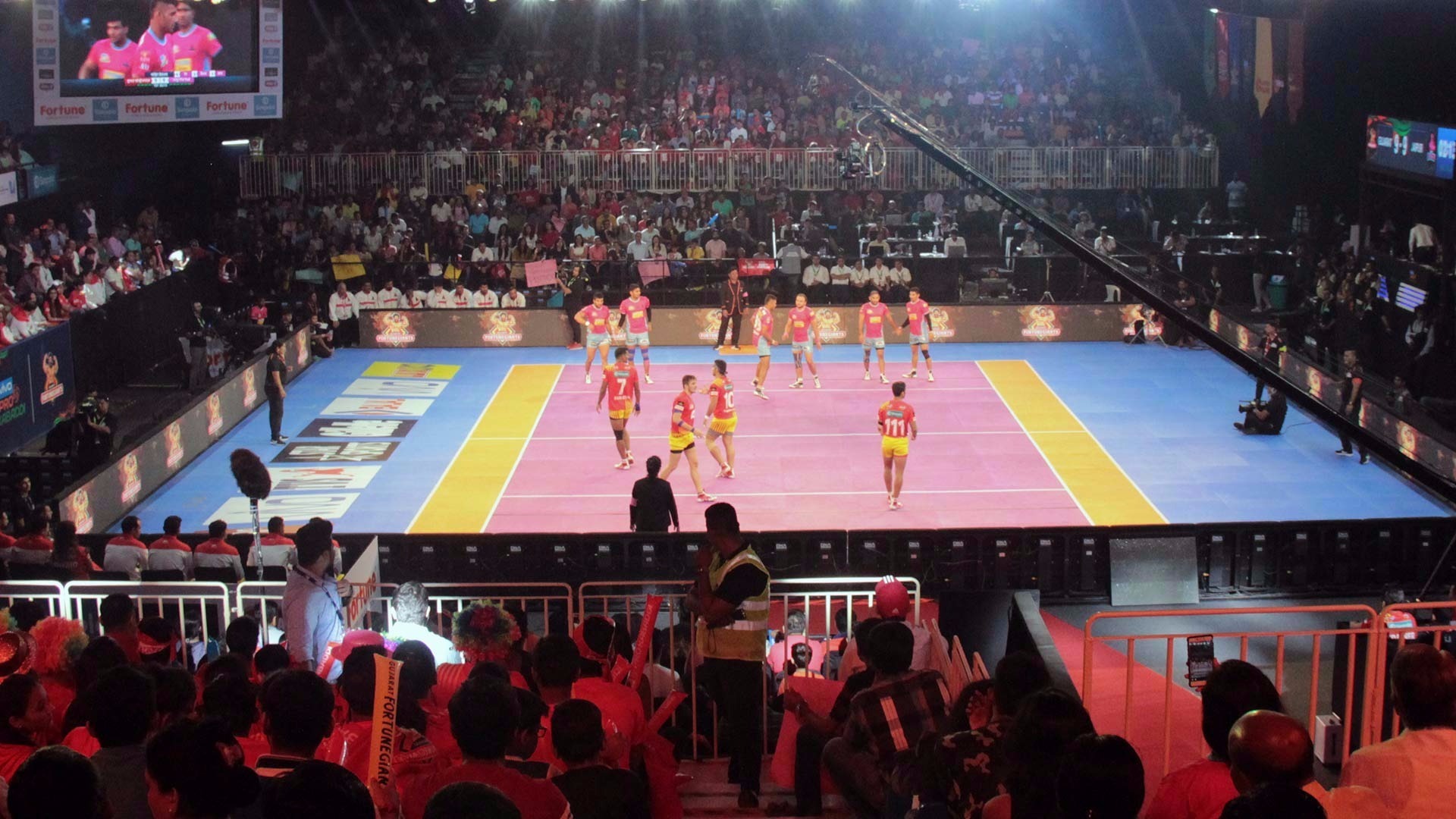About Kabaddi
Discover the origins, rules, and global rise
of the world’s fastest-growing contact sport.
Gameplay
Kabaddi is a high-intensity contact team sport in which two teams of seven players take turns sending a “raider” into the opponent’s half to tag defenders and return on a single breath. A standard match lasts 40 minutes—two halves of 20 minutes each, with a 5-minute break. Combining elements of wrestling, rugby, and tag, kabaddi has surged in global popularity and attracts millions of viewers every season.
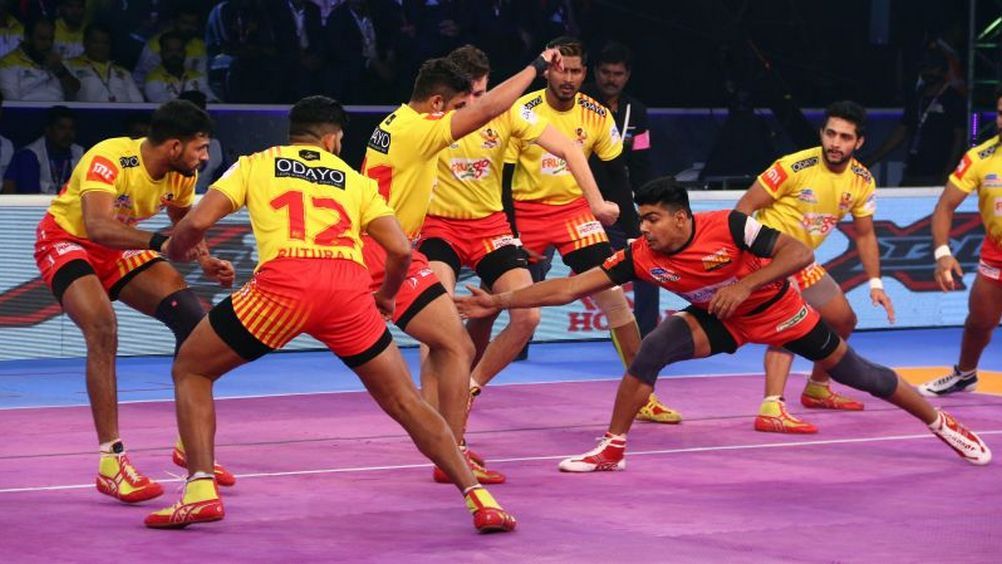
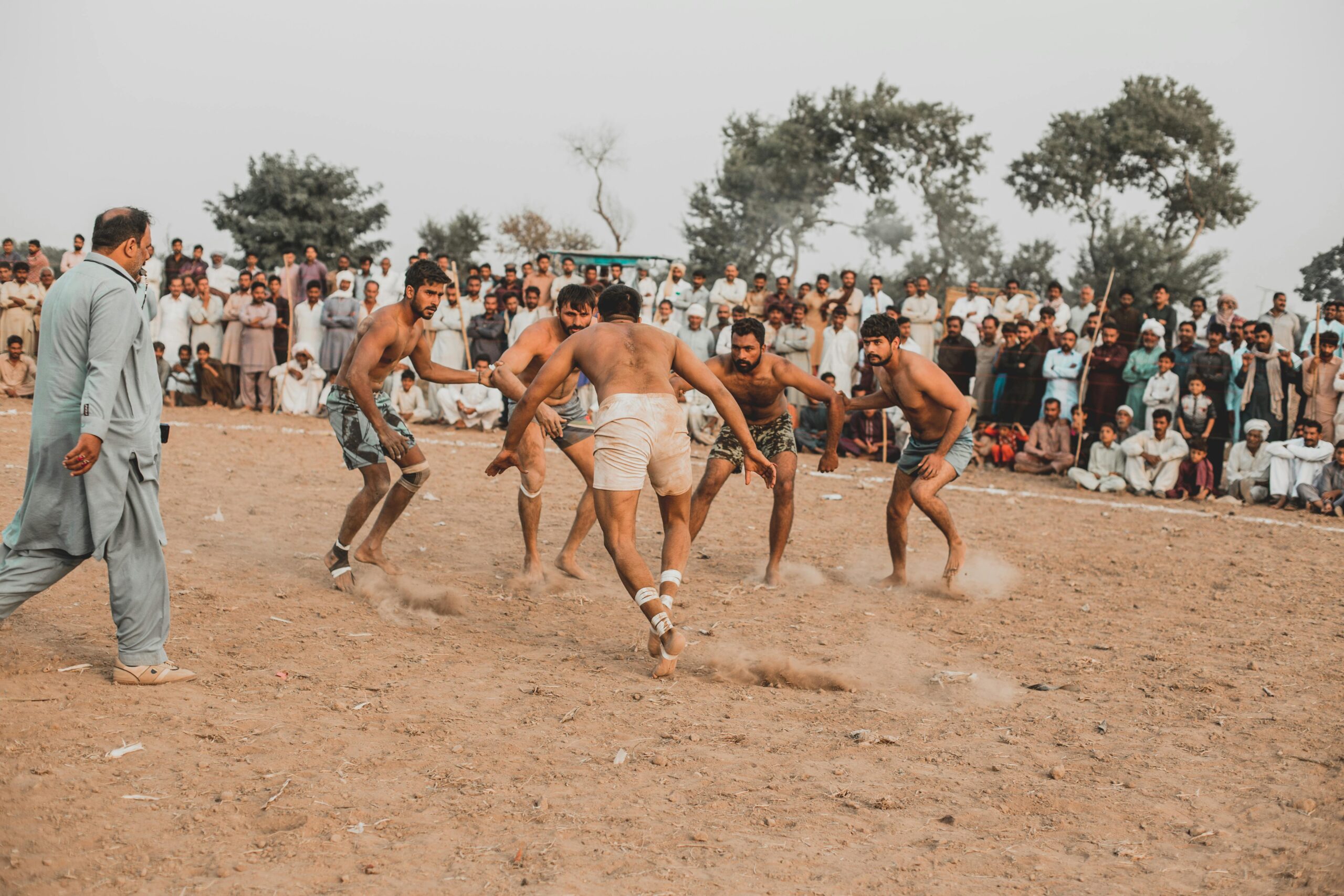
Origins & Early Forms
Kabaddi traces its roots back to prehistoric times and is referenced in Sangam-era Tamil literature as “Sadugudu”, a test of strength and endurance. The modern framework emerged in Maharashtra in 1921, with formal rules published for the All-India Kabaddi Tournament in 1923. Early matches were played on makeshift clay courts, laying the foundation for today’s international sport.
Modern Rules
The standard kabaddi court measures 13 × 10 m and is split into two equal halves. A raider enters the opponent’s side, chants “kabaddi…kabaddi…” on a single breath, and attempts to tag as many defenders (antis) as possible before returning safely. Each successful raid scores one point; defenders earn a point by tackling the raider.
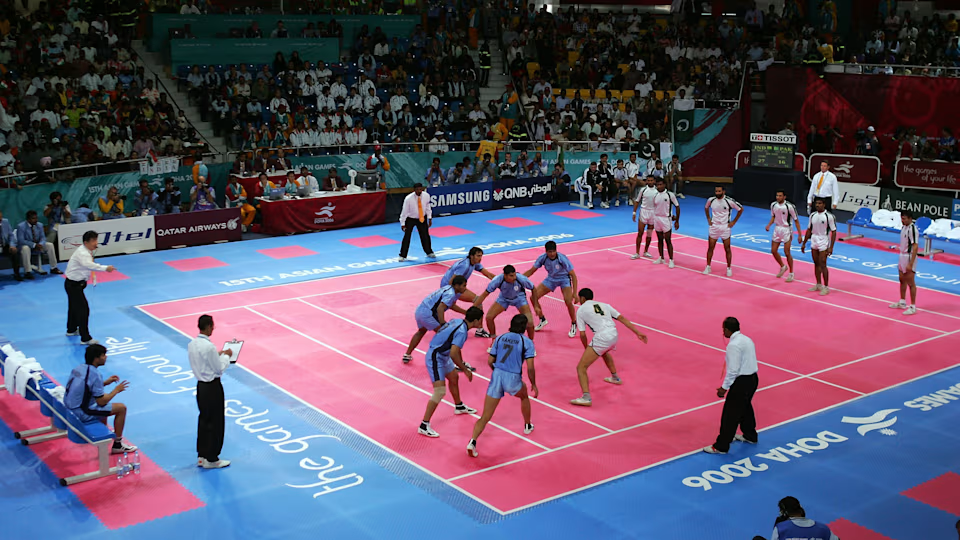
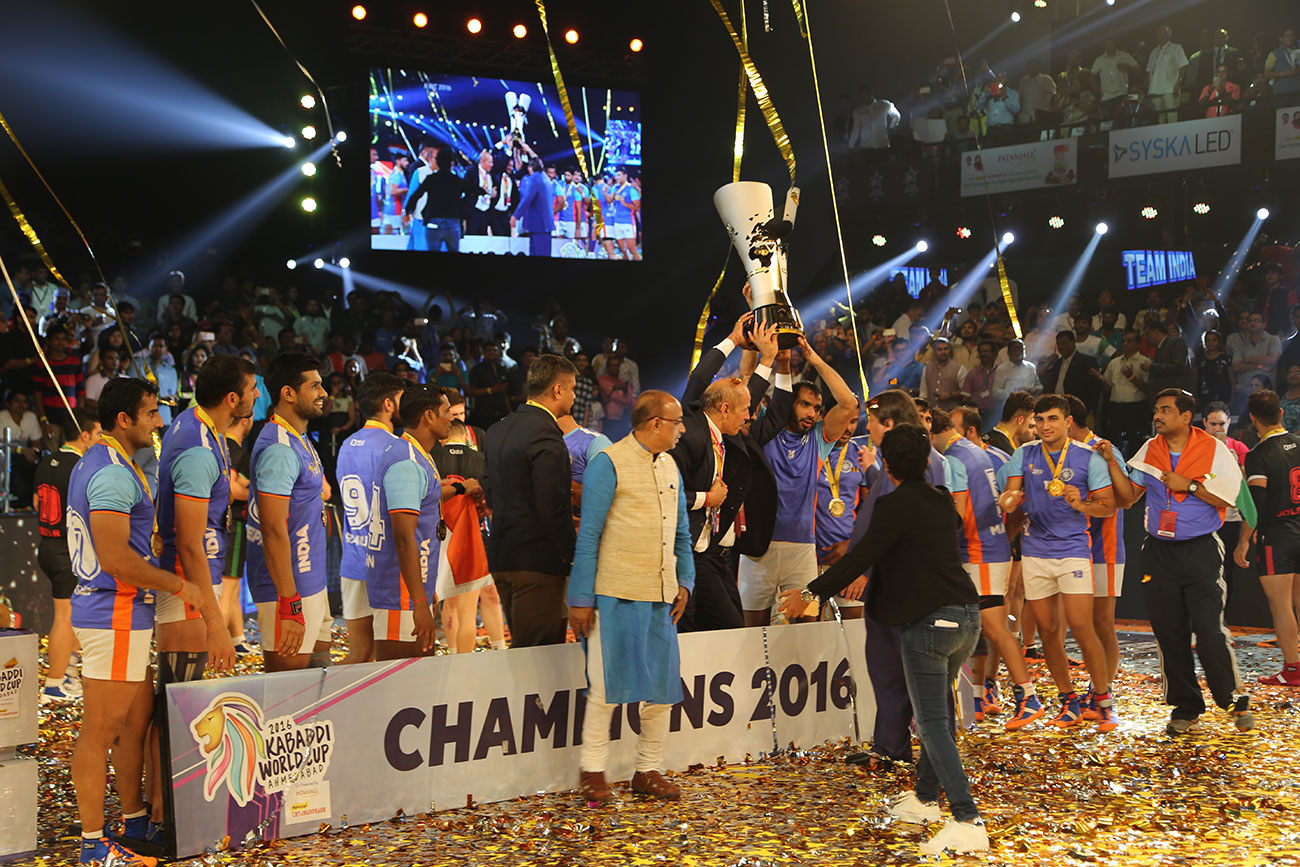
Major International Competitions
The inaugural Kabaddi World Cup was held in Mumbai in 2004, with India defeating Iran in the final; subsequent editions took place in 2007 (Panvel) and 2016 (Ahmedabad). India has won every World Cup title to date. The Pro Kabaddi League, launched in 2014, attracted over 351 million viewers in 2023—a 20% year-on-year increase.
Future Growth & Outreach
Kabaddi is expanding beyond Asia, with demonstration matches planned in England for the 2025 World Cup and growing interest in Europe, Australia, and North America. The Pro Kabaddi League’s digital viewership skews younger—70% under age 40—indicating strong future growth potential. Governing bodies are exploring inclusion in multisport events such as the Commonwealth Games and Beach Games, further boosting global exposure.
